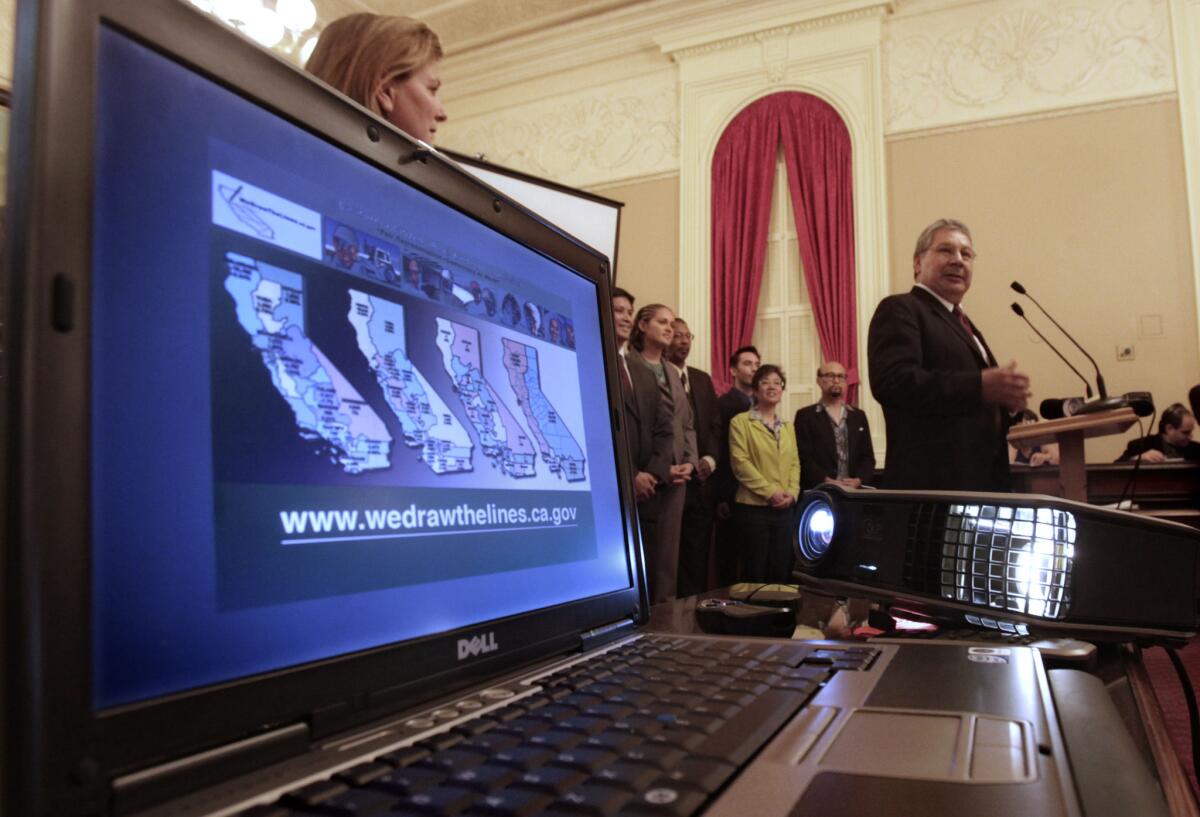Editorial: California’s independent redistricting commission has no Latinos? That’s an embarrassment

Last week, the state auditor stood behind a bingo cage filled with pingpong balls for a random drawing of eight lucky winners from among 35 names. The prize wasn’t a million dollars, but one of the first seats on the 14-member Citizens Redistricting Commission and the chance to shape California’s political future.
Though it was the luck of the draw, the results made for a pretty diverse octet. Half of those picked were women, three were Black and more than half of the commissioners were nonwhite — just like the state itself.
But by one crucial measure, the lottery failed miserably. None of the commissioners selected in the drawing was Latino. Not one.
This shouldn’t have happened. Not in a state in which Latinos are the largest ethnic group, accounting for about 40% of the nearly 40 million residents. And it can’t be chalked up to an astonishingly bad run of luck. The deck was stacked from the start.
It became clear that Latinos were woefully represented in the pool, making up just 14% of the applicants, even before the August deadline closed. The state auditor, who oversees the commission outreach and application process, extended the deadline under pressure from such groups as California Common Cause, which said they hadn’t been given enough time to do recruiting. But the extension was a dud, at least for Latino candidates whose percentages increased only slightly.
A state review panel did manage to increase the percentage of Latino candidates as it winnowed down the pool over the next few months, but it couldn’t overcome the early disadvantage — or the whim of legislative leaders from the two major parties, who collectively whacked several Latinos off a list of 60 semifinalists.
The random drawing of the first eight commissioners, who will pick the next six, is supposed to ensure a truly independent group chosen by chance, not by the machinations of politicians with their own agendas. But Proposition 11, which created the panel, didn’t envision a bunch of random Californians. It mandated a group that would fairly represent the diversity of this vast state and ensure that no one was left out of the process of drawing the boundaries of legislative and congressional districts — and certainly not the state’s largest ethnic group.
This outcome is not just embarrassing, it’s unacceptable. This means the eight new commissioners must prioritize Latinos when they pick the next six of their colleagues.
But that’s not enough. This can’t happen again. The outcome suggests that the selection process for this important panel is both fundamentally flawed and inherently discriminatory, like so many of our civic institutions have turned out to be under recent scrutiny. Every step in the process must be examined and, if necessary, revised long before applicants start applying for the 2030 commission.
More to Read
A cure for the common opinion
Get thought-provoking perspectives with our weekly newsletter.
You may occasionally receive promotional content from the Los Angeles Times.










